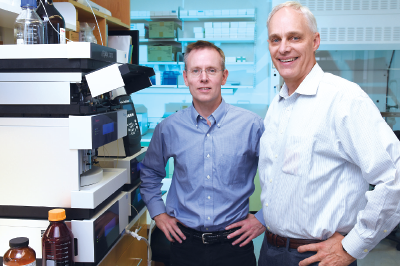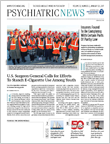An international genomics effort that scanned the DNA of over 100,000 people has identified a gene that may be tied to alcohol consumption.
This study, which was published in the December 13, 2016, Proceedings of the National Academy of Sciences, found that a variant in a gene called KLB was associated with lower rates of drinking in this population of European descent.
As David Mangelsdorf, Ph.D., chair of pharmacology at the University of Texas Southwestern Medical Center and one of the study’s principal authors explained, KLB encodes a receptor found in the brain called β-Klotho. This receptor is known to bind a liver-produced hormone called FGF21 (for fibroblast growth factor 21), producing a gut-brain communication loop.
Mangelsdorf and his lab have been studying FGF21 for many years andfound this hormone to be a key player in mediating cravings for sugars. In studies with both mice and monkeys, they found that the liver releases FGF21 into the blood in response to a high sugar intake, where it travels to the brain, attaches to β-Klotho receptors, and helps suppress the desire for more sweets.
As ethanol is metabolized, it produces a sugar-like molecule known as acetate that can also trigger the release of FGF21, so drinking desire may rely on the same gut-brain pathway as sugar desire.
In this new paper, Mangelsdorf used mouse models to validate the genetic findings and to determine whether FGF21 and β-Klotho could influence alcohol preference. They assessed how much alcohol the mice drank compared with water when given a choice of two bottles, using both regular mice and animals in which β-Klotho was knocked out.
The knockout mice showed a stronger preference for alcohol in general, and this taste for alcohol hardly diminished after the mice were given FGF21. When regular mice were given FGF21, their alcohol drinking decreased significantly.
Based on this finding, Mangelsdorf suggested that the newly uncovered genetic variant, termed rs11940694, alters how β-Klotho interacts with FGF21 such that the hormone has less ability to suppress the desire to drink.
The researchers also administered various behavioral tests to the mice and found no differences in fear or anxiety behaviors between normal and knockout mice. That finding likely rules out that the mice lacking β-Klotho drink to relieve stress and anxiety.
John Krystal, M.D., chair of the Department of Psychiatry at Yale School of Medicine and director of Yale’s Center for the Translational Neuroscience of Alcoholism (CTNA), found this study interesting on different levels.
“First of, it is important to note that this was a study of alcohol consumption, not alcohol use disorders,” said Krystal, who was not involved in this study. “It is not yet clear that this gene variant carries a specific risk for hazardous or maladaptive drinking.”
However, this gene variant seems to contribute to consuming more alcohol, which creates an environment that increases the risk for hazardous drinking, he added.
Krystal told Psychiatric News that one of his colleagues at the CTNA, Graeme Mason, Ph.D., found that the brains of heavy drinkers tend to rely on acetate more than glucose.
“These new observations would tend to suggest that among some heavy drinkers, the brain response to acetate is changing in someone who already has an altered consequence of acetate exposure due to the KLB gene variant,” he said.
In this way, the genetic vulnerability compounds the problem: as a drinker’s brain begins to rely more on acetate for energy, the reduced ability of FGF21 to suppress drinking results in more drinking to create more acetate, eventually transitioning a heavy drinker into a problem drinker.
However, this same mechanism is a potential target for intervention. Krystal noted that some approved medications, such as the PPAR alpha agonist class of diabetes drugs (like pioglitazone), do raise circulating FGF21 levels. It would be worth testing whether these agents have any effects on drinking behavior in people with the KLB genetic variant.
This study was funded by the Medical Research Council, the European Commission, and the Howard Hughes Medical Institute. ■
An abstract of “KLB Is Associated With Al-cohol Drinking, and Its Gene Product β-Klotho Is Necessary for FGF21 Regulation of Alcohol Preference” can be accessed
here.

